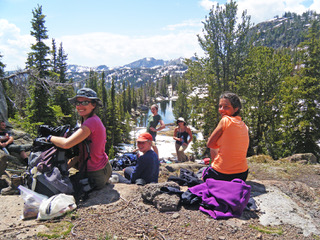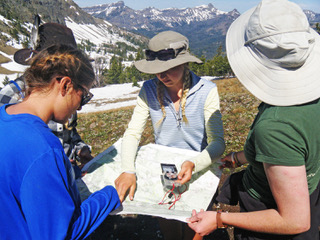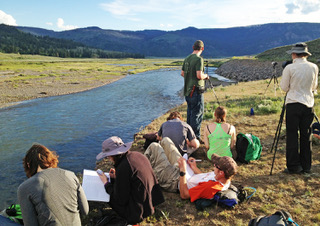 The Program
The Program
The Greater Yellowstone region is a highly complex and biologically diverse ecological system. It is one of the last remaining intact ecosystems in the lower forty-eight states, and still contains its entire pre-European compliment of species. Complex issues facing these wildlife populations present challenging management problems with few easy decisions.
Extirpated in the 1920s, restored in 1996, and delisted in 2011, wolves remain Yellowstone’s most controversial species. Every year thousands of people come to Yellowstone hoping for the chance to see a wolf in the wild. And yet many ranchers and hunters remain vocal opponents to the successful return of the wolf. At the same time, the Yellowstone grizzly bear has rebounded from 250 in the 1970s to more than 700 today, and the U.S. Fish and Wildlife Service is on the verge of delisting grizzly bears in Greater Yellowstone. Yellowstone National Park is also the only place in the United States where bison have lived continuously since prehistoric times, yet the park is not big enough to meet the year-round habitat needs of these majestic animals. Their need to migrate outside the park in the winter has created a seemingly intractable management problem, pitting the principles of conservation biology against ranching interests and the Montana livestock industry.
With Yellowstone’s Northern Range as our base, we will embark on forays in and around the park to conduct our wildlife studies and observations, including day hikes and a multi-day backpacking trip. Our hands-on field studies will be augmented by information exchanges with wildlife management experts and conservation community leaders. By the end of the project, team members will have a deeper understanding of the ecology of the Greater Yellowstone ecosystem and will have participated in firsthand investigations of major Yellowstone wildlife habitat issues in and around the nation’s first national park.
Program Details
Location: Bozeman, Montana
Dates: Summer 2026: June 21 – July 5, 2026
Applications: Accepted on a rolling admission basis
Accommodations: Primarily camping or backpacking
Credits: 5 quarter credits or 3.35 semester credits
Language: English instruction
Courses: Environmental Wildlands Studies
Prerequisites: One college level course in environmental studies, environmental science, ecology or similar. 18 years of
age
Program Costs
Yellowstone Summer 2026
$ 150 Application Fee
$ 2,850 Program Fee
$ 1,550 Group Logistics Fee
$ 700 Estimated Airfare and Mandatory Travel Insurance
$ 100 Estimated Personal Expenses
$ 5,350 Total Estimated Cost
Summer 2026: Program fees due by May 1, 2026



